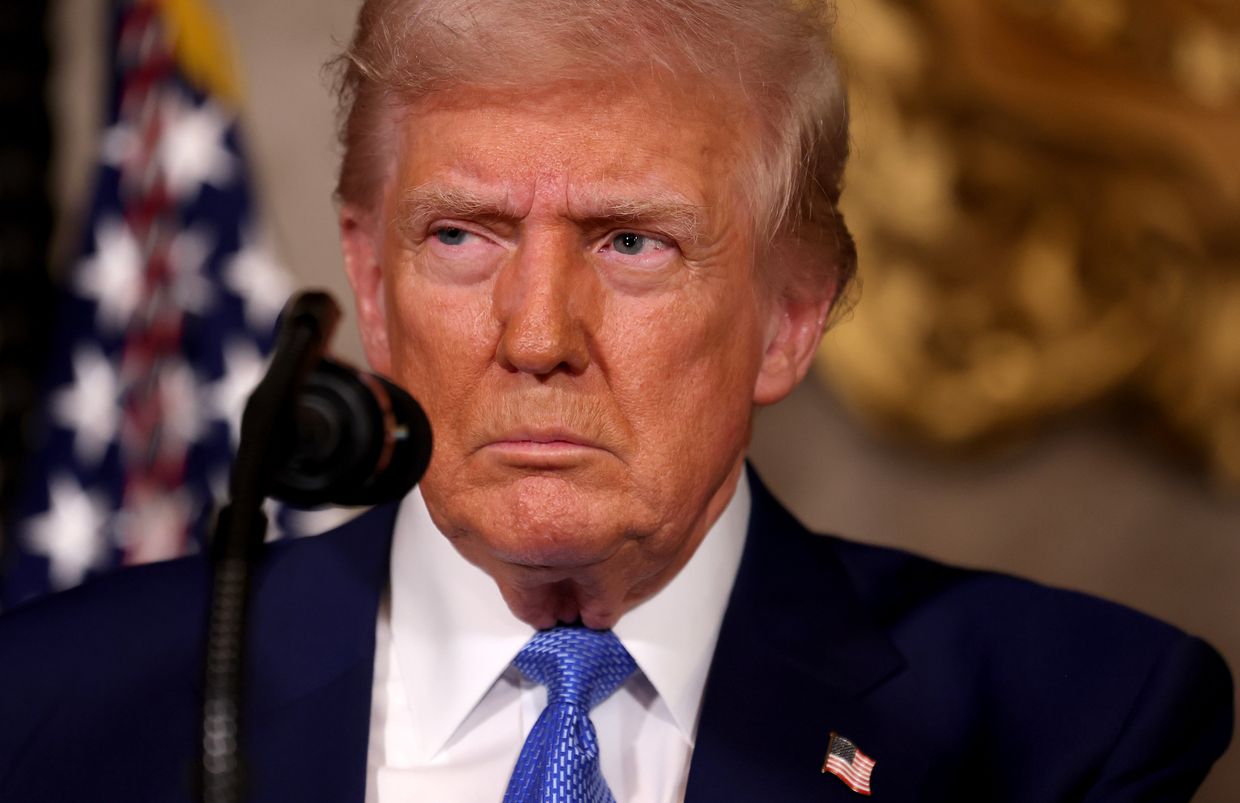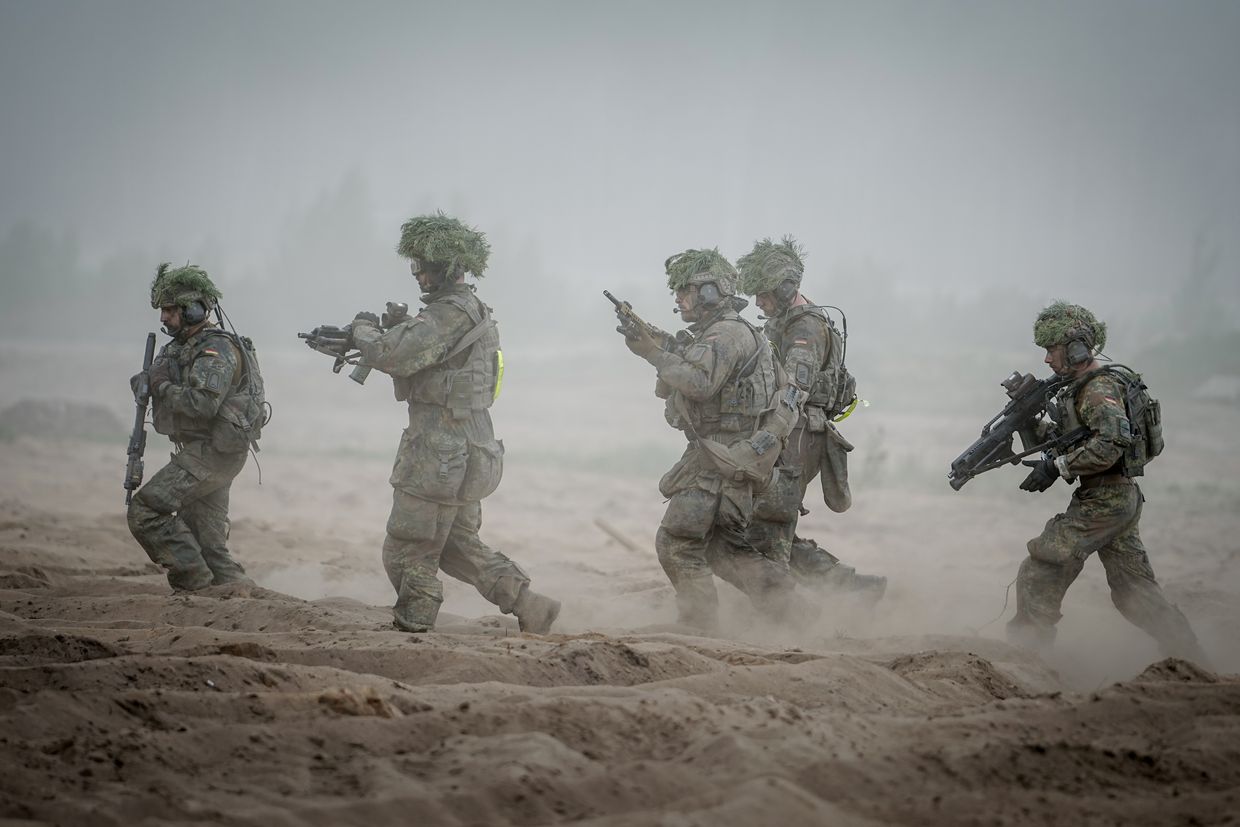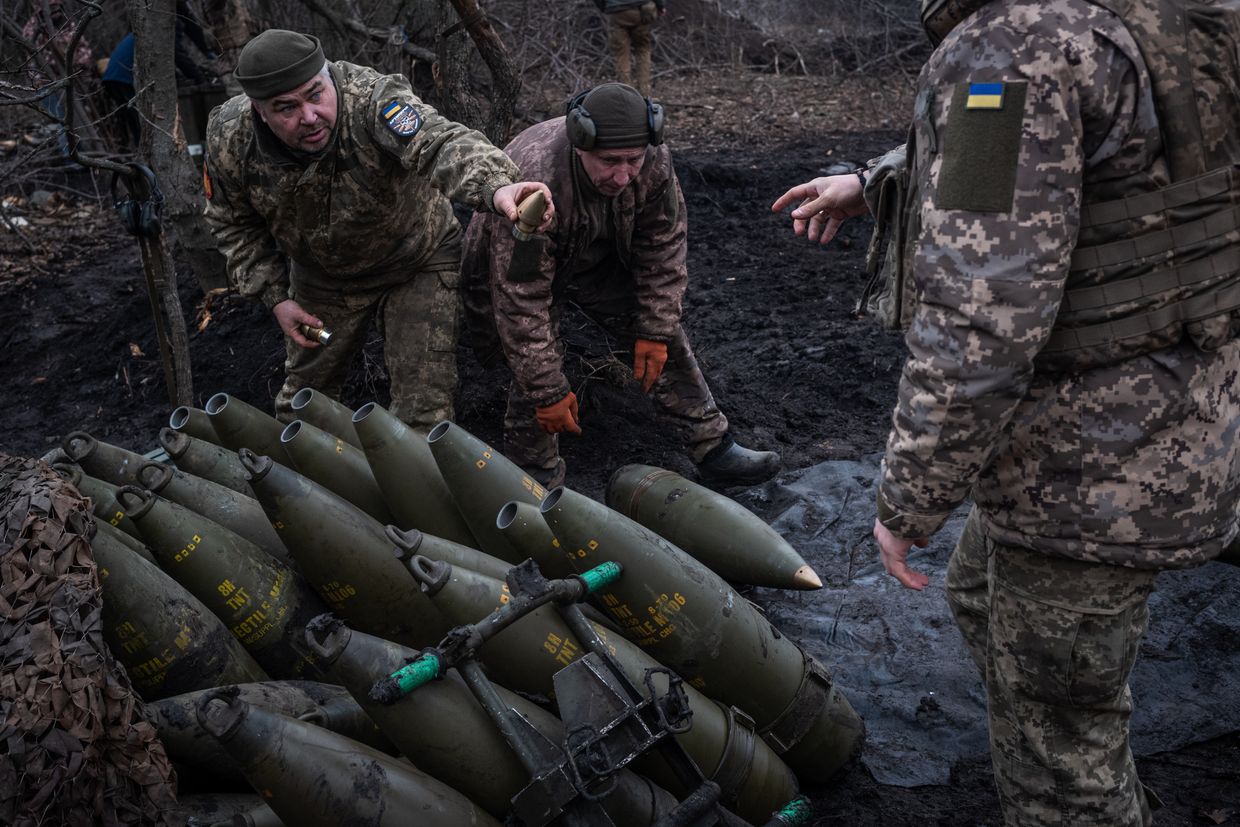Editor's note: The interview has been edited for clarity and brevity.
Donald Trump's return to the White House has forced Kyiv and other European capitals to ask themselves a sobering question: What will happen to Western support for Ukraine if the U.S. withdraws?
The U.S. has been, by far, the largest military donor to Kyiv, delivering $67 billion in arms since 2022, according to President Volodymyr Zelensky — a figure slightly higher than the overall defense commitments by all European countries combined.
Yet in recent days, Trump has attacked Europe over its supposed lack of contributions to Ukraine, overstated Washington's support, and given a very clear signal that the continent won’t be able to rely on the U.S. for its security in the future.
If the U.S. does withdraw, questions remain over whether Europe can realistically plug the gap and pay for the defense of Ukraine and the continent as a whole.
Lulled by decades of peace, Europe's defense industry has struggled to catch up with the high-attrition warfare in Ukraine, often failing on its promises to deliver arms and ammunition as fast as needed.
To whip the European defense industry into shape, Brussels has appointed veteran Lithuanian politician Andrius Kubilius as its first-ever defense commissioner.
The Kyiv Independent sat down with Commissioner Kubilius to ask whether the EU is ready to step up in the light of recent shifts in the U.S.
Speaking on the sidelines of the Munich Security Conference on Feb. 14, Kubilius pushed back against Washington's accusations while underscoring the strides made by the European defense industry since 2022.
Nevertheless, catching up with Russia's wartime arms production remains a challenge to be overcome, Kubilius warns.

The Kyiv Independent: U.S. officials said earlier this week that Europe should take up greater responsibility for supporting Ukraine militarily. Do you think the EU has the capacity to become Ukraine's leading supporter if the U.S. withdraws or reduces support?
Andrius Kubilius: First of all, we need to look precisely at the numbers. During three years of the (full-scale) war, EU support to Ukraine, which includes military support, budgetary support, and humanitarian support, was around 134 billion euros ($140 billion). If you calculate the same support from the United States, it's around $100 billion.
So, the overall support from the European Union is 30% bigger than support from the United States. When we look at military support, yes, Americans provided around $60 billion, and European support is 48 billion euros ($50 billion).
But if we are looking at the scale of support, unfortunately, both the EU and American support for Ukrainian defense per year does not reach 0.1% of GDP.
We need to look at how to increase support for Ukraine because we want to achieve this formula: "Peace through strength." Strength demands, from our side, bigger military support for Ukraine.
The Kyiv Independent: There are reports that the Americans are considering the idea that Europe would be buying U.S. weapons for Ukraine. What do you think about this proposal?
Andrius Kubilius: First of all, it would be good for us to buy much more Ukrainian production under the so-called Danish model. This would allow us to procure two times more weapons, which are needed for the Ukrainian army, with the same amount of money because the Ukrainian defense industry is very successful and becoming stronger.
Secondly, we can look at what we can provide from European Union industries. Then, perhaps there are some weapons that the Europeans are not producing and which are produced by Americans, and we need to look at how those weapons can be delivered to Ukraine.
I don't know if the Americans will stop providing support to Ukraine. I still hope they understand how important it is to give Ukraine additional strength. For the time being, we cannot react to what Americans are saying because we can see some different statements from different members of the administration.
The Kyiv Independent: The European defense industry has been criticized during the full-scale war for not delivering enough fast enough to Ukraine. For example, 1 million artillery shells were delivered only after a significant delay. Have these deficiencies been addressed?
Andrius Kubilius: Russia's war against Ukraine and our effort to support Ukraine have shown quite deep problems in the European defense readiness and defense industry. I would remind you that back in 2022, the European industry was able to produce only around 300,000 artillery shells per year. Once the promise to give 1 million shells was given, suddenly it was clear that we were not able to produce (them).
That is why the first European Union-level program, the so-called ASAP program, was introduced, which created mechanisms for how we can support European industries when they are expanding their production capacities on the EU level.
"We have a clear understanding from different EU intelligence services that Russia could be ready to test the European Union before 2030."
According to the numbers, we will end this year with the ability to produce around 2 million artillery shells per year. So we increased our production capacity by almost eight times.
We are now producing more than the Americans, but still, we see the challenge that the Russians, with their war economy and with assistance from North Korea, are able to produce more.
We need to continue those programs and look at how to expand our defense industry production in all different areas. In our white paper about European defense, which we are now drafting, we are trying to have a very clear understanding of what NATO capability targets European member states need to achieve very soon.
I'm always saying that we need to increase our defense capabilities, not incrementally but in what I call a Big Bang approach.

The Kyiv Independent: Do you have an estimate for when the European defense industry will match Russia's production?
Andrius Kubilius: We have a clear understanding from different EU intelligence services that Russia could be ready to test the European Union before 2030. Some, like the Danish intelligence, are saying even by 2027.
So our task is to be ready to defend the European Union in such a way as to deter Russia from any ideas about military aggression against European member states. That is why we need to move very rapidly.
The Kyiv Independent: President Donald Trump said that NATO countries should increase their defense spending benchmark to 5% of GDP, which is a level that none of the NATO countries, including the U.S., reached in 2024. How realistic do you think this goal is?
Andrius Kubilius: It's very clear that we need to increase our defense spending from 2%. It's a question for NATO to agree on the target. And as you correctly mentioned, when President Trump is speaking about 5%, he needs to say in a very clear way that he is ready himself to increase American defense spending, because now, their defense spending is around 3.5%.
There are quite a number of European member states who are now spending around the same amount, like 3.5%. Poland is leading with perhaps 4.5%. Now, the Baltic states are announcing they are going to raise defense spending up to 5% or 6%. But those decisions are made not because Trump is demanding them, but because there is such a guy as Putin.
We understand very well what can happen if we don't increase our defense readiness radically in a very short period of time.
The Kyiv Independent: You mentioned that one of the main goals now is to help Ukraine negotiate from a position of strength. But it seems time may be short, as President Trump is pushing for negotiations. Do you feel there is enough momentum from the EU to really help Ukraine negotiate from a position of strength?
Andrius Kubilius: As I said, the EU has been doing quite a lot with our assistance to Ukraine, because during the war, it's not only military assistance that's important — it's also assistance to the budget to keep the financial system stable. Humanitarian assistance is also very crucial. So the Europeans have done, we can say, more than Americans.
If the Americans are criticizing us (by saying) the Europeans need to do more, we accept that criticism, but we can say that the Americans could also do more. I don't know if that's the best way for us to spend time, criticizing each other on who needs to do more. In my view, we need to do more to strengthen Ukraine and have a clear plan on how we can realize that.
Note from the author:
Hi, this is Martin Fornusek. I hope you enjoyed this interview.
Our team strives to bring you the most interesting discussions with politicians, experts, and other important voices with insights on Ukraine's history, politics, and its resistance against Russian aggression.
We wouldn't be able to do so without the support of readers like you. To help us continue in this work, please consider becoming a member of the Kyiv Independent's community.
Thank you very much.














